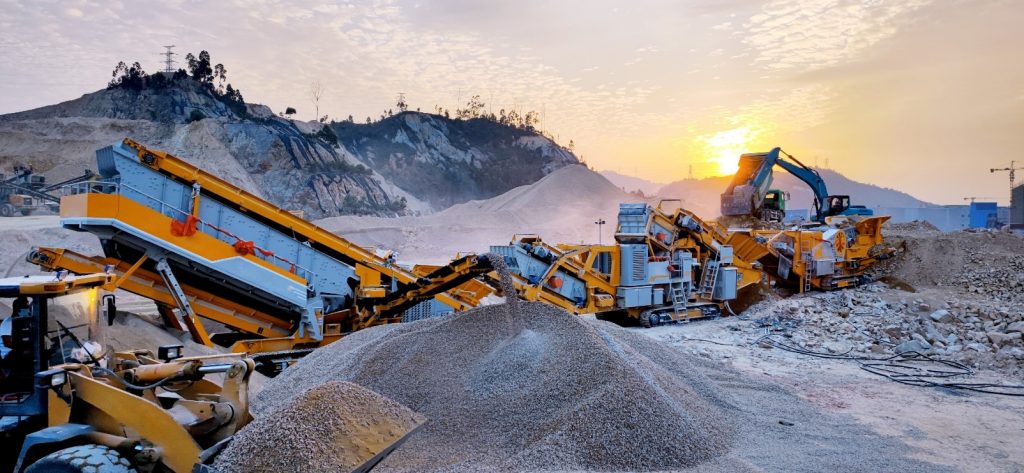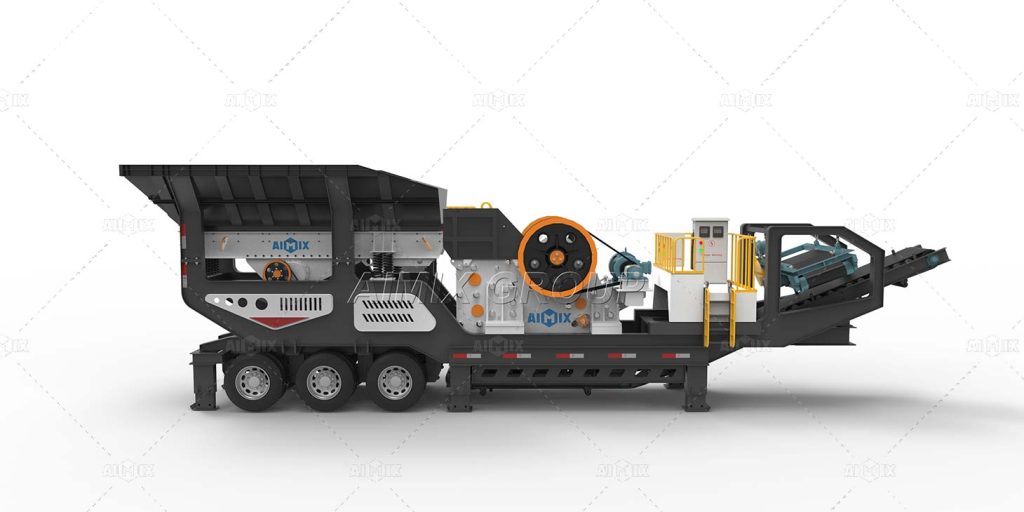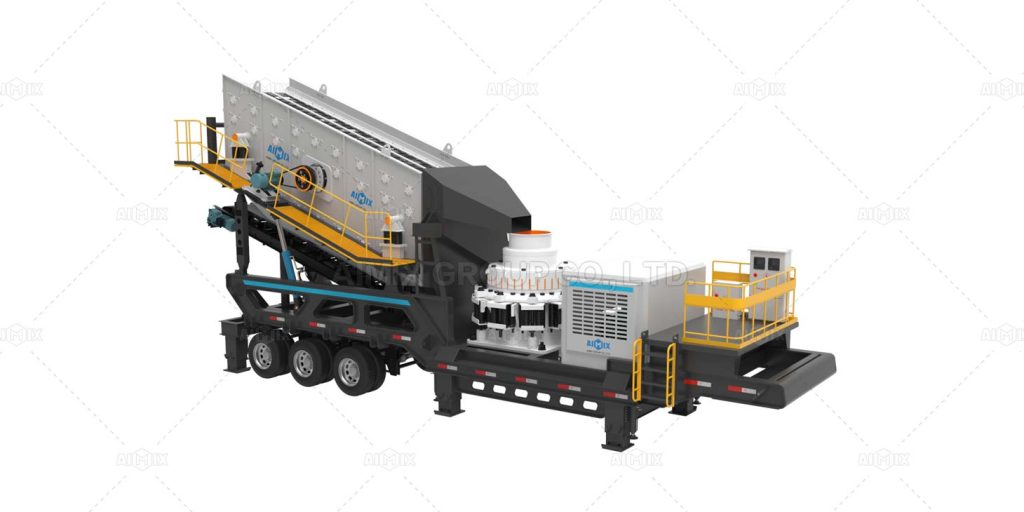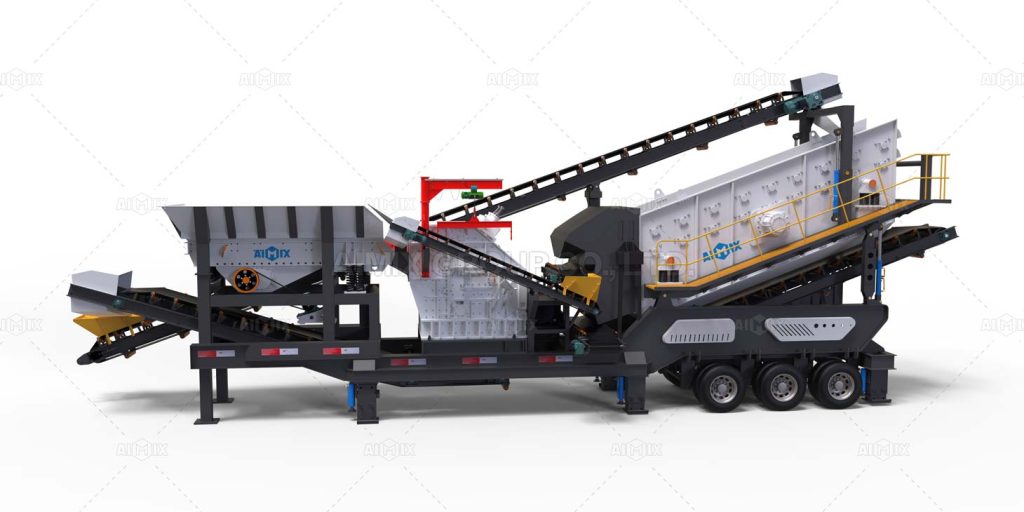In the ever-evolving landscape of construction and mining industries, the demand for efficient and mobile crushing solutions has surged. Mobile crusher plants have become pivotal in processing various materials on-site, offering flexibility and convenience. However, a critical consideration for potential users revolves around the cost implications. This essay delves into the factors influencing the costs of mobile crusher plants, exploring the distinctions between mobile jaw crushers, mobile cone crushers, and mobile impact crushers.

I. The Basics of Mobile Crusher Plants
A. Overview
Mobile crusher plants are designed to provide on-site crushing capabilities, eliminating the need for material transportation and reducing operational costs. These plants are versatile, adapting to different types of materials and production requirements.
B. Key Types
Mobile Jaw Crusher:
- Description: A primary crusher designed for crushing hard and abrasive materials.
- Features: Robust construction, high efficiency, and user-friendly controls.
- Cost Factors: Material capacity, power requirements, and advanced features contribute to the overall cost.

It is designed for on-site crushing of various materials, providing flexibility and convenience in construction and mining applications. The mobile jaw crusher allows efficient processing of hard and abrasive materials, making it a versatile solution for different industries.
Mobile Cone Crusher:
- Description: Emphasizes secondary and tertiary crushing, suitable for softer materials.
- Features: Versatility in application, efficient crushing, and ease of maintenance.
- Cost Factors: Cone crusher technology, crushing chamber design, and additional features impact the overall cost.

It is designed for efficient secondary and tertiary crushing of various materials on-site in construction and mining applications. Mobile cone crusher offers flexibility and mobility, allowing operators to move the equipment to different locations as needed.
Mobile Impact Crusher:
- Description: Focuses on crushing with impact, suitable for a wide range of materials.
- Features: High crushing ratio, quick setup, and advanced control systems.
- Cost Factors: Impact crusher technology, size and capacity, and automation features influence costs.

A mobile impact crusher is a type of crushing equipment designed to deliver high-efficiency crushing with the ability to produce shaped and consistent end products. It utilizes impact force to break down materials, making it suitable for a wide range of applications. Mobile impact crushers are versatile, easy to transport, and offer quick setup, making them ideal for on-site crushing in construction, mining, and recycling industries.
II. Factors Influencing Costs
A. Material Type and Hardness
The nature of the material being processed significantly affects the choice of crusher and, consequently, the overall cost. Harder materials may require more robust crushers, impacting both initial investment and operational expenses.
B. Production Capacity
The required production capacity influences the size and power requirements of the crusher. Higher capacities often necessitate larger and more powerful crushers, leading to increased costs.
C. Mobility and Transportation
The mobility of the crusher plant is a key factor in overall costs. Mobile crushers eliminate the need for costly material transportation, providing cost savings and logistical advantages.
III. Cost Breakdown for Mobile Crusher Plants
A. Initial Investment
Equipment Cost:
The primary crusher, whether it’s a jaw, cone, or impact crusher, contributes significantly to the initial investment.
Auxiliary Equipment:
Additional components like screens, conveyors, and control systems add to the upfront costs.
B. Operational Costs
Fuel and Energy:
Mobile crushers require fuel or electricity for operation. Fuel prices and energy efficiency impact ongoing operational costs.
Maintenance and Repairs:
Regular maintenance and potential repairs contribute to the overall cost of keeping the mobile crusher plant operational.
Labor Costs:
Skilled operators and maintenance personnel are essential for efficient and safe operation, adding to operational expenses.
In conclusion, understanding the costs associated with mobile crusher plants involves considering various factors. Material type, production capacity, and the choice of mobile crusher significantly influence both initial investment and operational costs. While each type of mobile crusher—be it the jaw crusher, cone crusher, or impact crusher—offers unique advantages, their costs are shaped by technological features, material capacity, and the level of automation. As industries continue to prioritize on-site processing, a thorough evaluation of these cost factors becomes imperative for informed decision-making in the procurement and utilization of mobile crusher plants.
